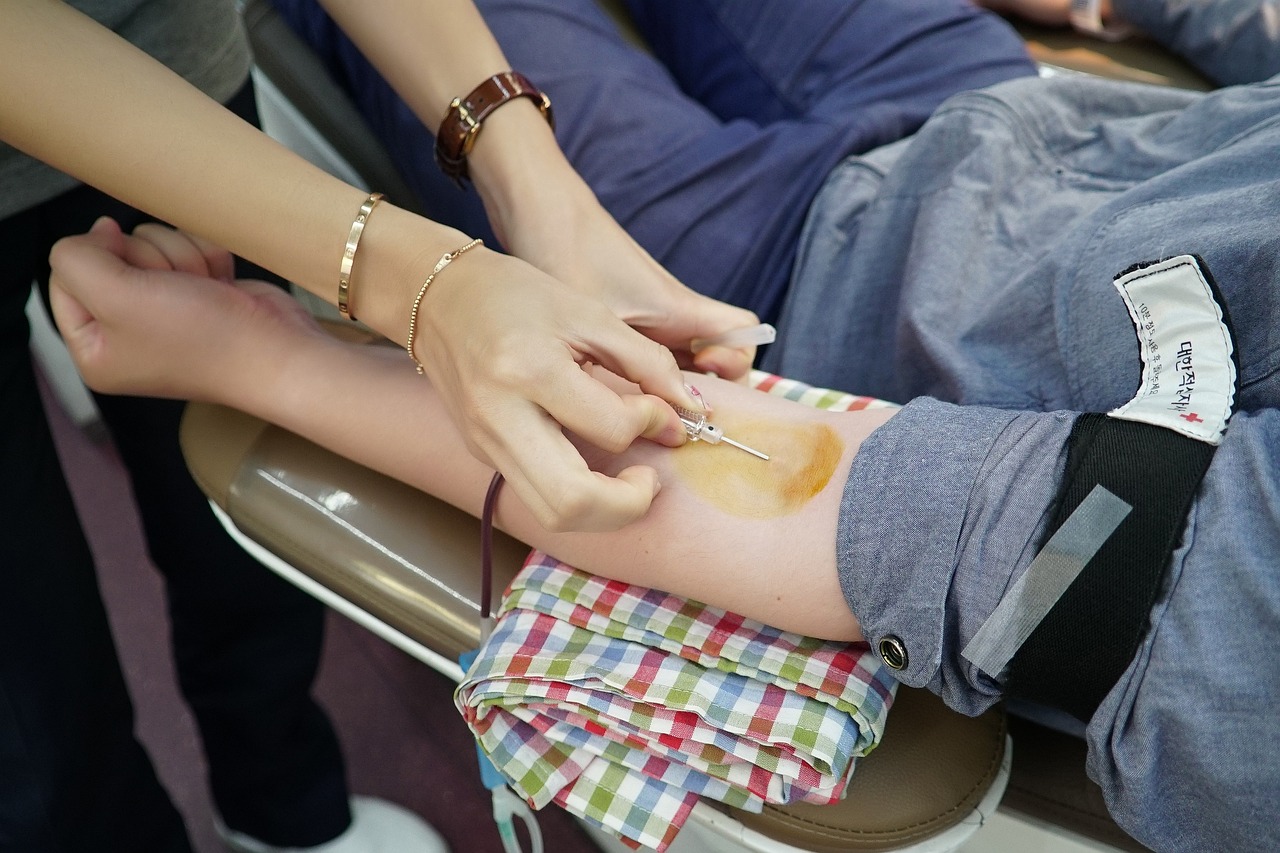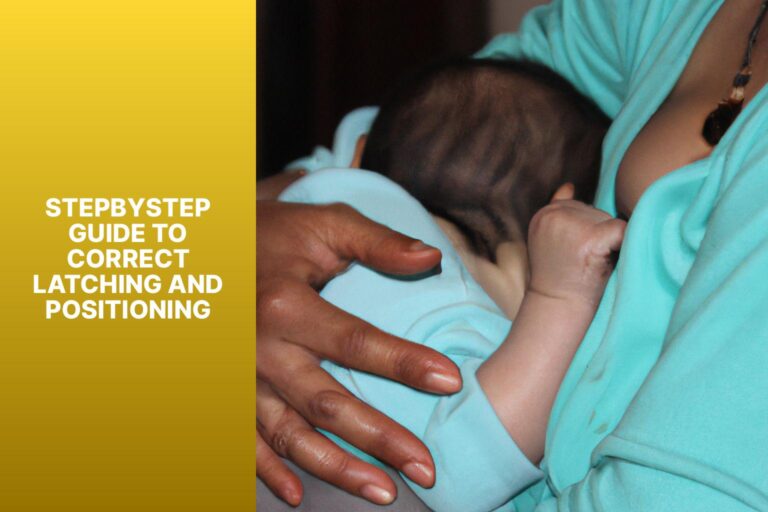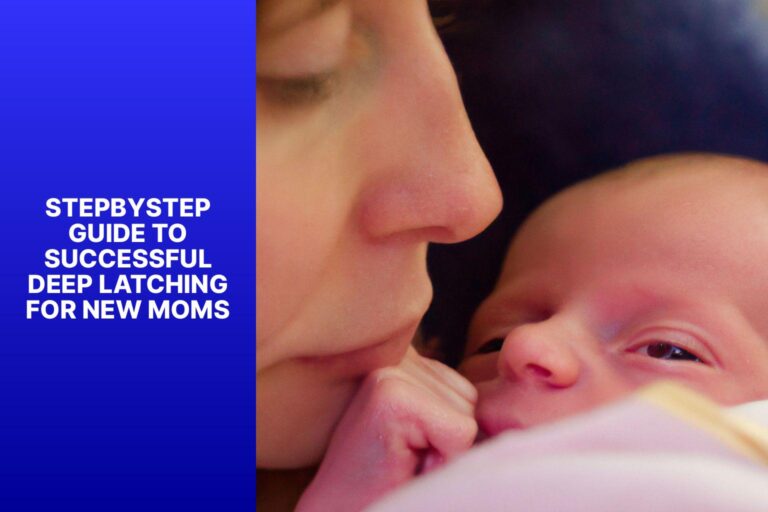Why is My Baby Making a Clicking Sound While Breastfeeding?
Often, plenty of media depicts breastfeeding as a silent activity. But that cannot be farther from the truth! Babies are audible while they eat, and these sounds are worth noticing.
Babies make different sounds while breastfeeding. For instance, you might hear them audibly gulping while drinking breast milk. Other times, your baby will let out a puff of air after swallowing, which produces a sort of “k-ah” sound.
Sound cues can effectively tell whether your baby is drinking enough milk. But what does it means if your baby is creating clicking sounds with their lips while breastfeeding?
Why Do I Hear a Clicking Sound While Breastfeeding?
When you hear clicking while breastfeeding, chances are your baby does not have a deep enough latch. Clicking can sometimes be accompanied by other signs, such as your baby having cheek dimples or you feeling soreness in your nipples.
But where is the clicking sound coming from? A shallow latch means your baby cannot stick to your nipple, and that clicking sound is from your baby breaking the seal between their lips and your breasts. Besides clicking noises, this poor latch can lead to discomfort and pain for your nipples. A poor latch also means your baby is not getting enough milk, which can lead to weight loss.
What Causes a Poor Latch?
Difficulties in latching and sucking can stem from different problems and circumstances. Sometimes, these situations require special care so your baby can receive nutrients. Other times, a small lifestyle or changes in technique is all you need.
Below are some situations where latching will be difficult:
Premature Birth
Babies born prematurely will have more problems with coordination, and they do not have the same swallowing, sucking, and breathing capabilities as non-premature babies. Most premature babies will need a feeding tube and will be fed that way before they can be breastfed directly. Most moms will rely on breast pumps for a while since they cannot nurse their babies.
Health Conditions
Some health conditions can make it harder for babies to latch onto their mothers. Babies with Down syndrome, for instance, have protruding tongues that can cause difficulties in latching. Acute health conditions, like jaundice and infections, and chronic illnesses, like heart disease, can hinder your baby’s coordination and capabilities.
Physical Conditions
Issues in a baby’s physique can make it laborious for them to latch and suck naturally. Babies who suffer from a cleft lip or palate or have tongue ties may not efficiently latch onto their mother’s breast.
Signs of a Poor Latch
Babies can have none of the ailments listed above but still experience difficulties latching onto their mom’s breast. It is crucial as a parent to know whether your baby is latching rightly onto you. Fortunately, the signs of a poor latch are not hard to notice.
The first thing you might notice is a change in cue. Within a 24-hour cycle, your baby should not cue for breastfeeding fewer than 8 times or more than 14 times. Your baby should also be able to wake themselves up when it is time for feeding.
Other signs of an ineffective latch include: falling asleep while latched on, not sucking continuously in the first 10 minutes, nursing on one breast for more than 30-40 minutes, and producing fewer than 3 to 4 stools daily.
Parents can also feel the effects of a poor latch. Moms can experience soreness, bruising, cracks, and deformation of their nipples. In severe cases, moms can experience plugged milk ducts and mastitis.
How Do I Improve My Baby’s Latch?
Babies with special needs, such as Down syndrome or a cleft palate, will require medical attention. Breast milk can help them immensely in their growth and development, so they must receive ample nutrition. Mothers must switch to pumping and using nursing alternatives if direct breastfeeding does not work.
Meanwhile, babies with no special needs can be taught how to latch correctly. Some tips to help improve your breastfeeding game include:
- Look for a comfortable position to help your baby latch. Always make sure to support and guide your baby closer to your nipple.
- Tickle your baby’s lips with your nipple to make them open wide.
- Massage and squeeze your breast to deliver more milk into your baby’s mouth.
- Wake your baby up every 2 to 3 hours to help them get used to breastfeeding cues.
- Keep track of your baby’s weight every day. You should also track the number of dirty diapers your baby has used and how their stool and urine appear.
- Allow your baby to have as much skin-on-skin contact with you while breastfeeding.
- If your baby has trouble getting a consistent latch, breastfeed them on one breast while pumping with the other.
- Ask family members if they can administer alternative feeding methods for your baby. This can free you up some time to pump more breast milk.
- Talk to your health provider for assistance, especially if your child has any health conditions that affect breastfeeding.
Breastfeeding should feel comfortable and not painful for parents. Your baby’s body and chin should also be touching you while breastfeeding.
Breastfeeding can get frustrating, especially since there are days when you feel like you or your baby have forgotten what a proper latch should be like. But stay calm and continue practicing and adjusting. Pretty soon, your baby will get a good hang of it.
FAQ:
Can a proper latch reduce the clicking my baby makes?
The correct latch can reduce or eliminate clicking noises in your baby. A deep latch means your baby cannot easily slip off your breasts.
My baby has a cleft palate. How can I feed them if breastfeeding is not a viable option?
Babies born with cleft lip or palate can still drink breast milk but cannot directly breastfeed. Instead, companies have designed bottles for babies with a cleft lip or palate.
Will I know if my baby is getting enough milk in the long run?
You should see improvements in your baby once you have corrected their latch. You can usually see them gaining more weight and soiling their diapers more.









